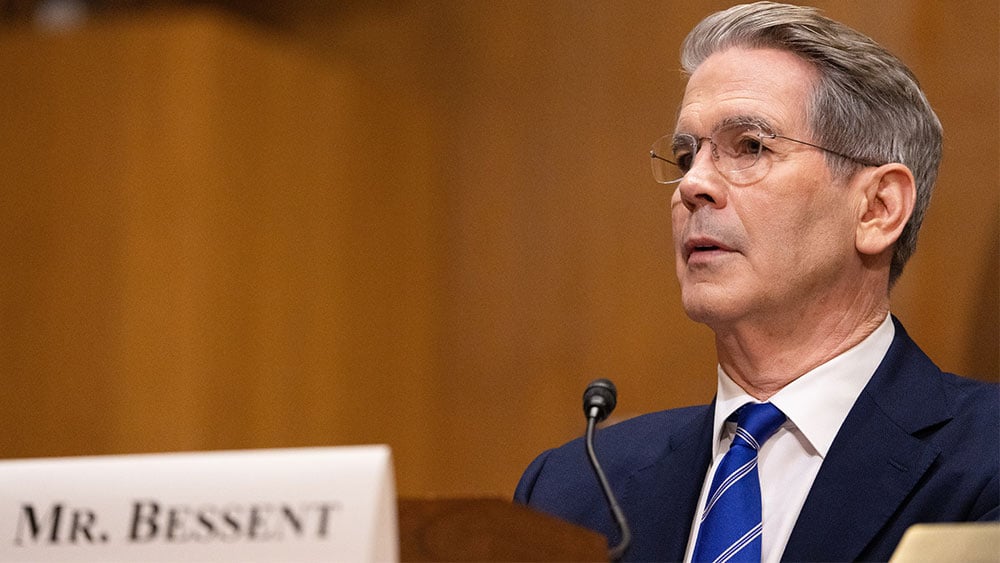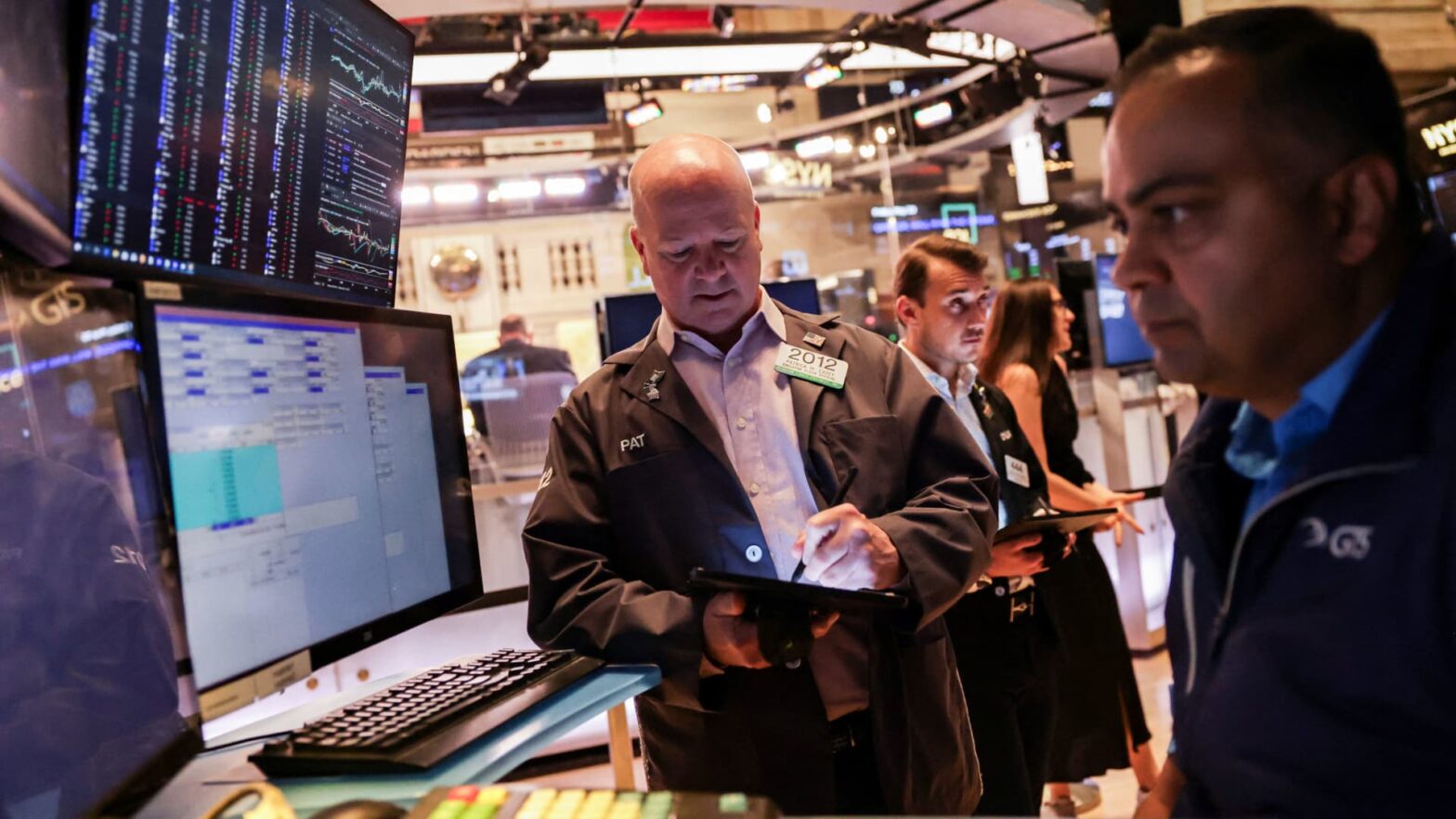The global stock market sell-off has continued after President Trump showed no sign of backing down on his tariff plans, stoking recession fears.
The FTSE 100 opened 2.5 per cent lower and within five minutes was down 5.56 per cent, or 450 points, at 7,605.97. The more UK-focused FTSE 250 dropped 4.9 per cent.
Trump indicated he was not worried about losses that have already wiped out trillions of dollars in value from equity markets around the world.
“I don’t want anything to go down, but sometimes you have to take medicine to fix something,” he said aboard Air Force One as he returned from a weekend of golf in Florida on Sunday.
Japan’s Nikkei 225 index dropped 7.8 per cent on Monday and South Korea’s Kospi 5.6 per cent. Both countries have car industries that will be hard hit by US tariffs.
In China, which accelerated a market rout on Friday by imposing retaliatory tariffs on the US, the Hang Seng in Hong Kong lost 11.7 per cent and the SSE Composite 7.7 per cent. Markets are waiting to see if Beijing will respond with more stimulus.

Chinese markets were down on Monday morning
WANG ZHAO/AFP VIA GETTY IMAGES
Taiwan’s main index, which had been shut on Thursday and Friday, fell nearly 10 per cent, leading policymakers to curb short selling.
Bill Ackman, the billionaire fund manager who endorsed Trump’s run for president, called for the tariffs to be paused to avert an “economic nuclear war”.
Maki Sawada, an equities strategist at Nomura Securities, said: “It’s extremely difficult to judge how far this stock market correction will run (but) as long as there exists a lack of clarity of tariffs and each country’s response, the market will remain heavy.”
Futures point to stock markets on the continent opening down, with Germany’s DAX expected to fall 4 per cent. Wall Street was forecast to fall when trading begins, with S&P 500 and Nasdaq futures both down.
Last week, market losses in America rose to almost $6 trillion, with US stock markets recording their worst single day of trading since the onset of the pandemic on Friday. The S&P 500 shed more than 4.5 per cent and the tech-focused Nasdaq was down nearly 6 per cent.
London’s blue-chip index had suffered its biggest daily fall since the start of the pandemic on Friday as stock market losses accelerated after China retaliated with an extra 34 per cent tariff on all US goods. The FTSE 100 closed 4.95 per cent, or 419.76 points, lower to 8,054.98 as traders fled to the safety of government bonds. The benchmark index lost almost 7 per cent of its value last week in a market rout triggered by President Trump’s sweeping import taxes on more than 90 trading partners.
The UK economy faces a “material hit” from President Trump’s tariffs, which threaten to rupture global trade, amplifying the risk of further tax rises and spending cuts by Rachel Reeves, KPMG has warned.
The Big Four account said growth was on track to slow to just 0.8 per cent this year and next as Trump’s shift towards a protectionist trade policy “undermines” the UK economy. KPMG previously forecast that the economy would expand by 1.7 per cent this year and 1.4 per cent next year.
Falls in the European Union were steeper, with the Dax index in export-reliant Germany down almost 5 per cent and France’s CAC losing 4.3 per cent. Italy’s FTSE MIB tumbled nearly 6.5 per cent — the eurozone’s third-largest economy is heavily exposed to US tariffs through its goods exports.















